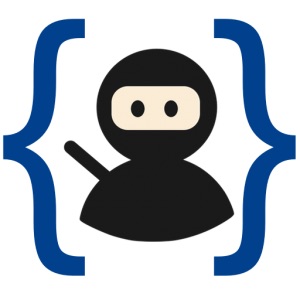When Bart and I recorded PBS 150 on Bash Script Terminal Plumbing, neither of us was happy with it. I got very confused in the middle, and Bart decided that his original strategy might have been flawed in which he assumed everyone had heard Taming the Terminal and remembered everything taught more than 4 years […]
Continue readingCategory: Chit Chat Across the Pond
Chit Chat Across the Pond is a weekly interview show on the topic of technology, or sometimes just with someone really interesting.
CCATP #766 — Dr. Maryanne Garry on Influencing Delusions About Highly Complex Skills
This week our guest is your favorite psychological scientist, Dr. Maryanne Garry of the University of Waikato in New Zealand and www.garrylab.com/… Dr. Garry and four of her colleagues published a paper recently in the Royal Society Open Science called “Trivially informative semantic context inflates people’s confidence they can perform a highly complex skill”. The […]
Continue readingCCATP #765 — Bart Busschots on PBS 149 of X — Better Arguments with POSIX Special Variables and Options
In this rather mind-bendy episode of Programming By Stealth, Bart Busschots takes into the weird world of POSIX special variables and options. He refers to some of them as being like handling nuclear power, at one point he suggests mind-altering drugs must have been involved in the design, and he even compares one of our […]
Continue readingCCATP #764 — Adam Engst on Mac Cloud Storage Changes
Adam Engst of TidBITS joins me on Chit Chat Across the Pond Lite to talk about the changes Apple made recently to the File Provider Extension. These changes had a fairly significant effect on how cloud storage providers like Dropbox, Google Drive, OneDrive, and Box work with macOS. Whether you realize it or not, you’ve […]
Continue readingCCATP #763 — Bart Busschots on PBS 148 – A Bash Potpourri (Subshells, Relative Paths & More)
This week’s Programming By Stealth is a great lesson on how no matter how long you’ve been coding, you’ll still get caught out from time to time and think that the universe makes no sense. When Bart was working on the challenge from PBS 147, he ran into a bizarre situation for many hours. He […]
Continue readingCCATP #762 — Bart Busschots on PBS #147 – Bash Arrays
In this week’s episode of Programming By Stealth, Bart walks us through how to create, add to, and extract from arrays using Bash. It’s a very light episode, which I manage to drag out longer by making him slow down and dig into the syntax used for arrays. It’s not just me being dense (this […]
Continue readingCCATP #761 — Bart Busschots on PBS 146 of X – Shell Loops
As Bart continues our education in shell scripting, he explains the simplicity of looping. He explains the four types of loops: while, until, for, and select, along with the simple syntax of do/done within a loop. He walks us through a lot of examples that illustrate how each one of these loops work. He ends […]
Continue readingCCATP #760 — Rod Simmons on Migrating from LastPass to 1Password
In this week’s episode of Chit Chat Across the Pond Lite, Rod Simmons of the SMR Podcast and BBQ and Tech joins me to talk about password managers. After the recent breaches and more importantly breaches of trust from LastPass, Rod migrated over to 1Password and changed all 400 of his passwords. We talk through […]
Continue readingCCATP #759 — Bart Busschots on PBS 145 of X — Shell Conditionals
Bart continues his miniseries on shell scripting by teaching us conditionals in the shell. In order to explain why conditionals are a bit odd in shell scripting, Bart first walks us through how it was originally done and then shows us the evolution to a much better method. It’s still weird, and many things are […]
Continue readingCCATP #758 – Bart Busschots on Programming By Stealth 144
This week our guest is Bart Busschots with Programming By Stealth 144. When last we recorded, Bart started teaching us the basics of shell scripting using Bash. We learned how to collect terminal commands into a reusable shell script, but we didn’t learn how to accept any kind of input. In this installment, we learn […]
Continue reading

